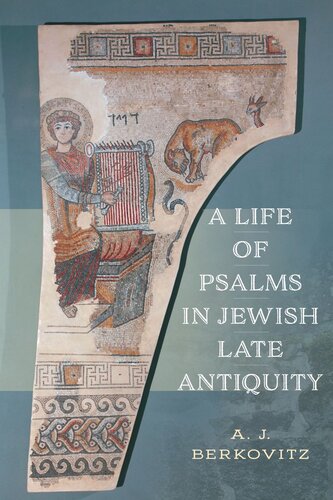

Most ebook files are in PDF format, so you can easily read them using various software such as Foxit Reader or directly on the Google Chrome browser.
Some ebook files are released by publishers in other formats such as .awz, .mobi, .epub, .fb2, etc. You may need to install specific software to read these formats on mobile/PC, such as Calibre.
Please read the tutorial at this link: https://ebookbell.com/faq
We offer FREE conversion to the popular formats you request; however, this may take some time. Therefore, right after payment, please email us, and we will try to provide the service as quickly as possible.
For some exceptional file formats or broken links (if any), please refrain from opening any disputes. Instead, email us first, and we will try to assist within a maximum of 6 hours.
EbookBell Team

4.4
22 reviewsA Life of Psalms in Jewish Late Antiquity clarifies the world of late ancient Judaism through the versatile and powerful lens of the Psalter, recounting the many ways that ancient Jews held physical copies of the Psalms, read from it, interpreted it, used it for liturgy, invoked it as magic, and recited it as an act of piety.
The Bible shaped nearly every aspect of Jewish life in the ancient world, from activities as obvious as attending synagogue to those which have lost their scriptural resonance in modernity, such as drinking water and uttering one’s last words. And within a scriptural universe, no work exerted more force than the Psalter, the most cherished text among all the books of the Hebrew Bible.
A Life of Psalms in Jewish Late Antiquity clarifies the world of late ancient Judaism through the versatile and powerful lens of the Psalter. It asks a simple set of questions: Where did late ancient Jews encounter the Psalms? How did they engage with the work? And what meanings did they produce? A. J. Berkovitz answers these queries by reconstructing and contextualizing a diverse set of religious practices performed with and on the Psalter, such as handling a physical copy, reading from it, interpreting it exegetically, singing it as liturgy, invoking it as magic and reciting it as an act of piety. His book draws from and contributes to the fields of ancient Judaism, biblical reception, book history and the history of reading.